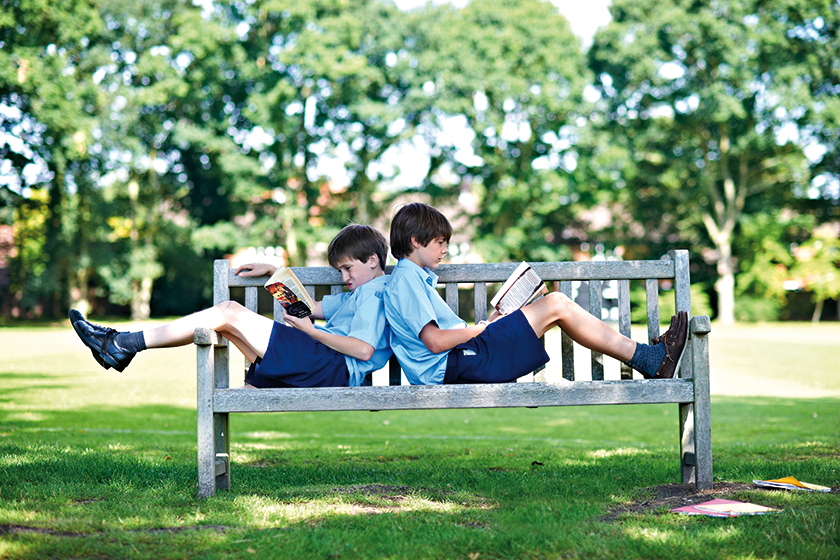
- HOME
- EDUCATION
Reading Support: How to Encourage Reluctant Readers
Football fiction books author Tom Palmer says that encouraging reluctant readers is about finding the right subject
By | 7 years ago
Whether you’re looking for reading support for kids, or reading support resources for parents, Tom Palmer has some ideas…

Papplewick School
I didn’t call myself a reader when I was a boy. I grew up in a house full of books, my parents read a lot and my sister was a big reader but her books didn’t interest me. Kind relatives gave me books trying to encourage me to read but they looked boring and I felt stupid for not being interested in them, not boosted. I was a reluctant reader. A fact that was reflected in my school work.
Then my mum took control. She got it that I didn’t like my sister’s stories about kids in boarding schools or weird big-eared, half-magical creatures. She got it that I liked football. So, she ordered football magazines and read me match reports out of the newspaper. She borrowed football fact books from the library and encouraged the kind relatives to buy sports books.
Slowly, with her reading support, I began to enjoy it. I was confident about football and started to read more widely. I began to call myself a reader with my mum as my private reading motivator. Now, as well as being an author of children’s books I work as a reading motivator, using sport to motivate children to read for pleasure.
Tom’s reading support advice
Use the excitement around a major sporting event
Whenever there is a football or rugby World Cup event I work with the National Literacy Trust to create resources designed to be used in the classroom to promote reading, including advice on how to set up great displays, in-class activities and book groups.
Footballers as role models
If you can get past this idea as an oxymoron, there are some great resources available online and as posters to show children that footballers read; children respond when Frank Lampard says he likes reading. Parents also respond when he says he likes reading to his children, and I have met enough footballers to know that he means it.
Peer to peer
Encourage children to talk about reading in front of others. It’s not easy. I do it with reading games, by saying that they will be able to take penalties and win trophies if they join in. But if you can get a room full of kids saying they like reading newspapers (about sport, crime, war) or magazines (about video games, celebrities, animals) and books (about footballers, pop bands, films they like), other kids listen. Word of mouth from peers is very powerful.
Sports book groups
I would have been terrified to go anywhere near a book group when I was a boy. Even now I would be wary about sitting and talking about how I feel about a story but it is different if you hold a book group around a sports book. It’s about finding the right books to help children read. I’ve seen how animated men and boys can become talking about sporting fiction and non-fiction. It doesn’t need to be official. It can be a family or three mates arguing about something they are comfortable with, it’s still a book group.
Recruit parents to support their child’s reading
Children who read for pleasure usually do so because their parents read to them and read themselves, and have helped their children find the books at their level that they had been interested in reading themselves. Their parents will have found the time to make reading exciting and relevant; ten minutes every evening makes a colossal difference.
tompalmer.co.uk
READ MORE: What’s Next for Children’s Literature in the Digital Age?/ 20 Children’s Books to Add to Your Library



